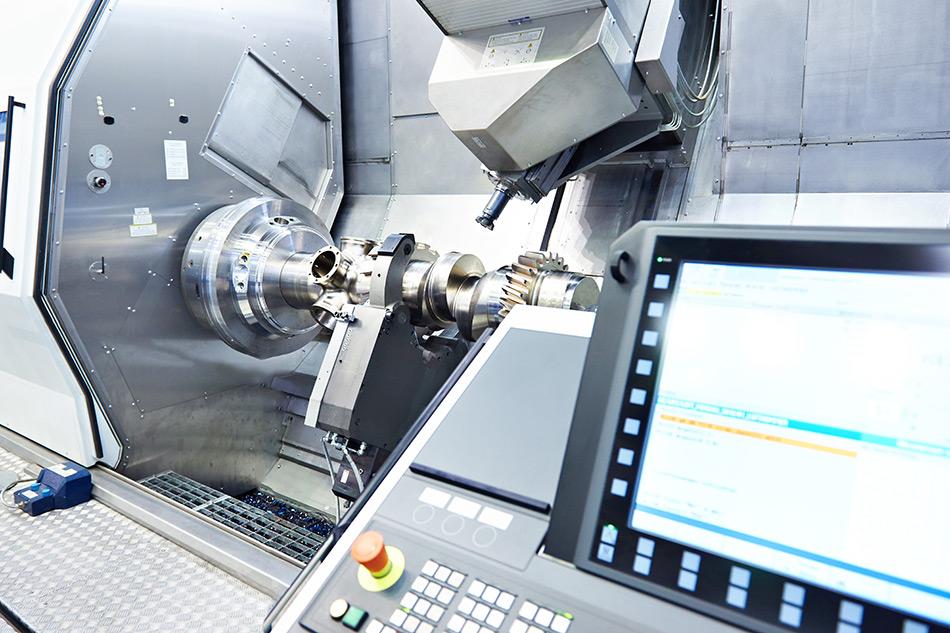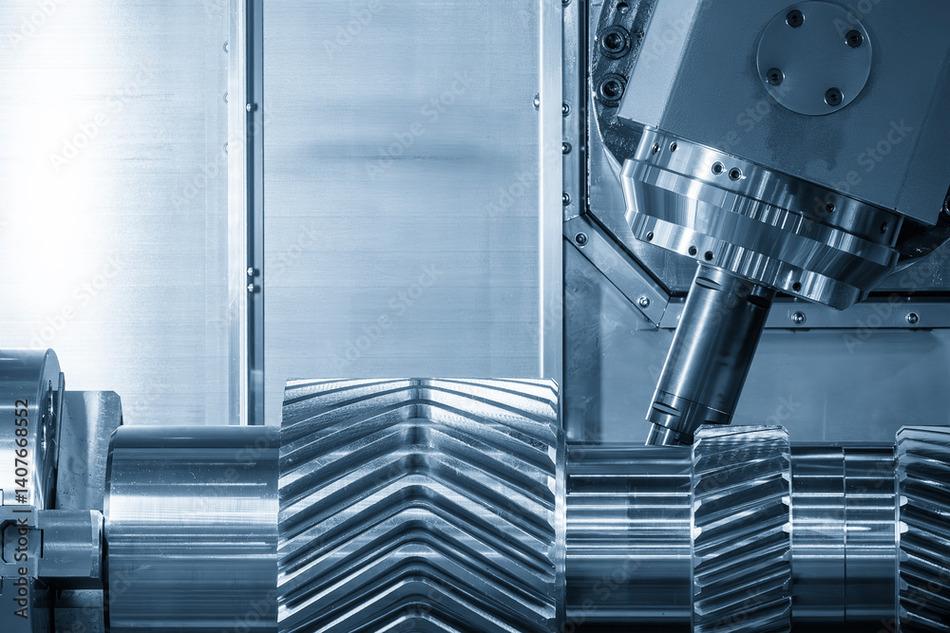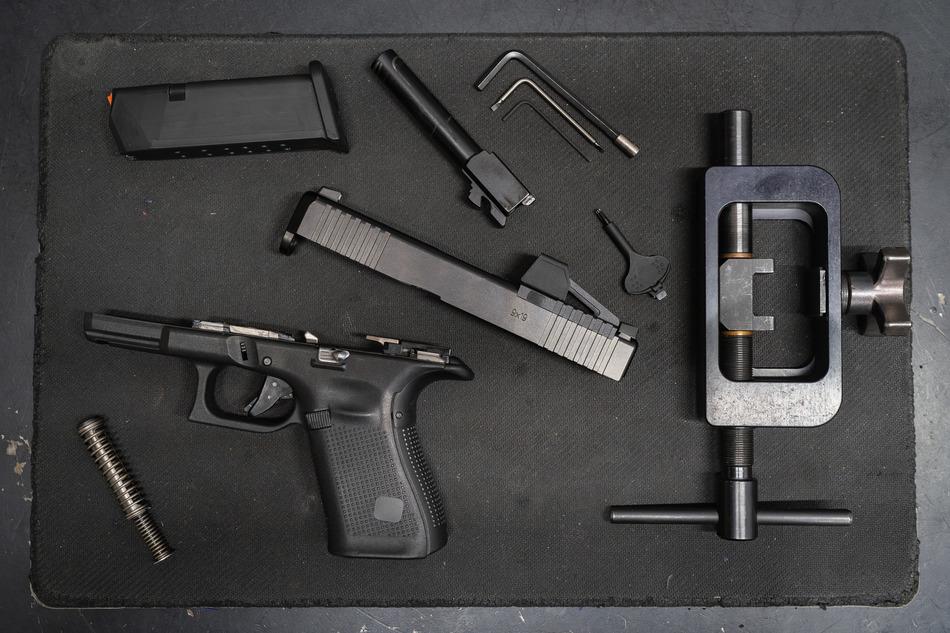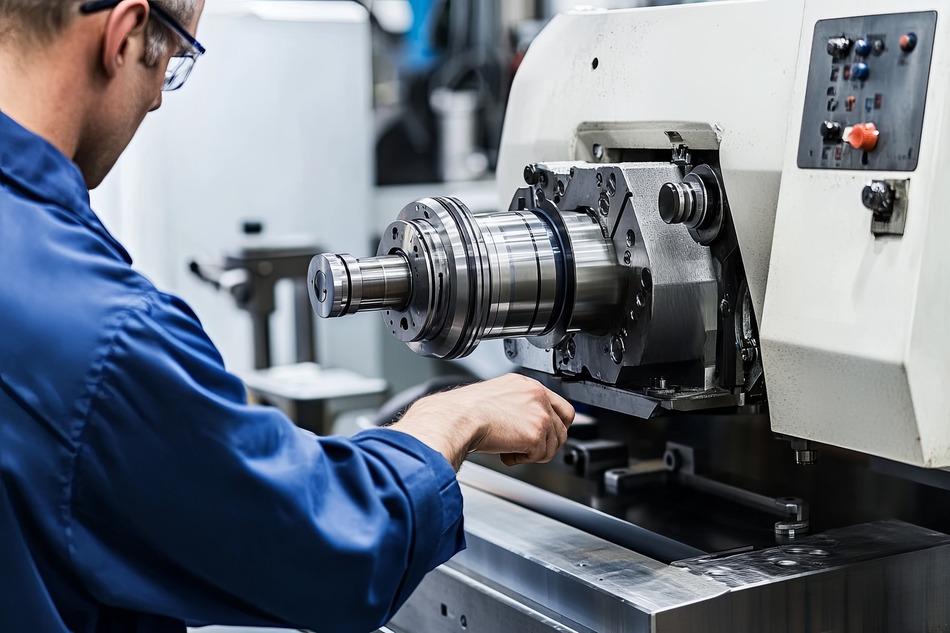How Precision CNC Machining Drives Quality and Consistency
Computer numerical control (CNC) machining is a powerful tool in computer aided manufacturing today. CNC machines follow computer instructions to shape raw materials with incredible accuracy. This makes CNC ideal for creating detailed, custom parts that fit perfectly and work well. It’s widely used in many industries, from cars and airplanes to jewelry and art.
In this blog, we’ll explore how CNC machining services support creative designs and custom products. We’ll see how it helps companies make unique shapes, produce custom pieces quickly, and even save materials. Let’s look at what CNC machining can do beyond simple manufacturing.
CNC machining is excellent for making parts with complicated designs and fine details. Many products today need parts that aren’t just simple shapes—they may have small grooves, curved edges, tiny holes, or multiple layers. These kinds of details can be very difficult, or even impossible, to create with regular tools. But CNC machines can make these complex parts accurately and consistently, even if the designs are very detailed.
Making Complex Parts with CNC Machining
The process starts on a computer aided design (CAD), where engineers and designers create a digital model of the part. This model shows every small feature and exact measurement the part needs. Once the design is complete, the CNC machine follows these digital instructions, using cutting tools to shape the material exactly as planned. CNC machines can move in several directions, allowing them to remove material and carve out fine details and create parts that match the digital design perfectly.
One of the biggest benefits of CNC machining is that it can make the same part over and over without any changes. If a company needs multiple copies of a complex part, the CNC machine will produce each one with the same level of detail and accuracy. This consistency is important for parts that need to fit together precisely. By making each part to exact measurements, CNC machining helps reduce mistakes and ensures that the parts will work well together in the final product.
Creating Custom Parts Quickly and Easily
One of CNC’s biggest advantages is its flexibility. Conventional machining often requires new machining tools or a lot of setup time for different designs. But CNC machines can make custom parts just by loading a new file. This is helpful when companies need to create different items in small batches.
In the automotive industry, for example, companies sometimes want custom parts for specific car models. With CNC, they can make each part fit exactly, without having to retool the whole machine. The same goes for the medical field, where custom implants or tools are often needed for specific patients. CNC machines can produce these unique parts based on digital designs, ensuring each part fits perfectly.
CNC is also popular in creative industries. For example, jewelry designers use CNC to create custom rings and pendants. Artists can even carve detailed patterns into metal or wood. CNC allows designers to produce high-quality pieces with unique details every time.
Prototyping: Testing Ideas with CNC
CNC machining is also an ideal tool for prototyping, which means creating a test version of a new part or product. Prototypes are important because they allow companies to try out new ideas and see how they work in real life before full production begins. With CNC machining, companies can make these test parts quickly and adjust them as needed. This makes it much easier to test and improve designs without having to build an entire production setup.
The manufacturing process starts with a digital design of the part, just like with regular CNC projects. Engineers create a 3D model on the computer, which includes all the details they want to test. The CNC machine then uses this design to shape the material into the first version of the part. If the part works as expected, the design can move forward. But if changes are needed, engineers can adjust the digital model, and the CNC machine will create a new version. This flexibility is extremely helpful for refining ideas and finding the best design.
CNC prototyping also allows companies to experiment with different materials. For example, they might test a part in metal and then try it in plastic to see which one performs better. This ability to quickly switch materials and test different options helps companies find the best solution for each project. By making prototyping faster and easier, CNC machining helps companies develop reliable products more efficiently.
CNC Machines Work with Many Materials
One of the strengths of CNC machining is that it can work with a wide variety of materials. CNC machines are versatile enough to handle hard metals like steel and titanium, as well as softer materials like plastic, wood, and even certain types of foam. This ability to work with different materials means companies can choose the best option for each part, depending on what it needs to do.
For example, if a part needs to be lightweight but strong, a company might choose aluminum. If the part requires extra strength and durability, they might select a tougher metal like titanium. CNC machines can shape each of these materials with the same level of detail and precision, so every part meets its specific requirements. This flexibility is a big advantage for companies looking to improve their products by using the best materials for the job.
CNC machining’s ability to handle different materials also allows for experimentation and testing. Engineers and machine operators can try a part in several materials to see which one performs best, making it easier to find the right fit for the project. This helps companies make smarter choices about materials and create parts that are both effective and durable. With CNC machines, the options are wide open, allowing for creativity and precision in material selection.
Adding Artistry and Detail with Precision CNC Machining
CNC machining isn’t only used for technical parts—it’s also a great tool for creative designs and artistic details. Designers and artists often use CNC machines to add unique shapes, patterns, and textures to their work. CNC technology makes it possible to take a digital design and turn it into a real, physical object with high precision. This is especially useful when artists or designers want to add fine details or create custom designs that stand out.
With CNC, designers start by creating a digital model of their idea. This model includes every detail they want, from patterns to textures. The CNC machine then follows these instructions exactly, using cutting tools to shape the material as designed. For example, in jewelry making, CNC machines can carve intricate designs on rings or pendants, creating pieces with beautiful, detailed patterns. This level of accuracy is hard to achieve by hand, but CNC makes it possible to produce high-quality, custom designs every time.
CNC machining is also popular in fields like furniture design, where creators want to add unique touches to their work. CNC machines can carve patterns into wood or shape metal into precise forms, giving each piece a custom look and feel. This blend of creativity and precision allows artists and designers to bring their ideas to life in new ways, creating pieces that are both functional and visually striking.
CNC Machining Supports Quality and Reliability
CNC machining is known for producing parts that meet high standards of quality and reliability. Because CNC machines follow exact instructions from digital designs, they make each part to precise measurements. This accuracy is important because even a small mistake in size or shape can cause issues when parts are put together. With CNC, companies can trust that each part will meet the same quality standards every time.
One reason CNC machining is so reliable is its ability to work with tight tolerances. Tolerances are the small amounts of variation allowed in a part’s size or shape. CNC machines can create parts that stay within these tolerances, which means each part will fit and work as expected. This is essential when parts need to connect or interact with each other smoothly, like in a complex machine or product. By making parts that are accurate and consistent, CNC machining helps prevent problems like misalignment or poor performance.
CNC machining also helps reduce the chances of defects, which saves companies time and money. Since CNC machines create parts that match the design exactly, there is less need for reworking or fixing errors. This keeps production running smoothly and ensures that each part meets the intended quality level. With CNC technology, companies can produce reliable parts that are ready to use, helping to build trust and satisfaction in the final products.
Making Manufacturing More Sustainable with CNC
CNC machining also supports more sustainable manufacturing practices. By following precise digital instructions, CNC machines use only the amount of material needed to create each part. This efficiency helps reduce waste, as there’s less leftover material or scrap. For companies working with expensive or limited resources, this reduction in waste can make a big difference in cost effective environmental impact.
Another way CNC machining promotes sustainability is by creating durable parts. Because CNC machines can make parts that fit together perfectly, there’s less wear and tear on the parts over time. Products made with precision machined parts are often longer-lasting and need fewer repairs or replacements. This durability means that fewer parts end up as waste, helping reduce the need for frequent replacements and supporting a more eco-friendly production cycle.
CNC machining also allows for the production of lighter parts, which can contribute to energy savings in products that need to be moved or powered. For instance, lighter parts can improve fuel efficiency in transportation or reduce energy use in products that need power to operate. By making products that are strong, long-lasting, and efficient, CNC machining plays a role in creating a more sustainable future for manufacturing.
Empowering Intricate Designs and Sustainable ManufacturingEmpowering Complex Designs, Customization, and Sustainable Manufacturing
CNC machining is a powerful tool that supports creativity and precision in manufacturing. It allows companies to make complex parts with intricate details, create custom designs, and work with a wide range of materials. From helping companies test new ideas through prototypes to supporting sustainable practices, CNC machining is an essential part of modern manufacturing.
As more industries adopt CNC technology, the possibilities for creative and functional designs continue to grow. Whether in engineering or art, CNC machining helps companies bring unique, reliable products to life with accuracy and consistency.
Ready to achieve unmatched precision in your CNC machining projects? Contact In-House CNC at (951) 540-4820 or sales@in-housecnc.com to learn how our CNC services can elevate your production quality. Our team specializes in delivering high-accuracy solutions across a range of industries, ensuring each part meets exact specifications. Reach out today to discover how In-House CNC can support your goals for quality, consistency, and reliability in every project.




